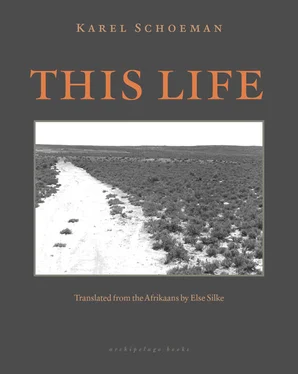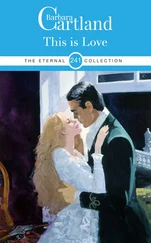In time the men who called upon Father began to bring their wives and families along. Initially the women entered our voorhuis hesitantly, as though uncertain of their welcome, almost as if they did not feel quite safe with us, and Mother was nervous and sat up very straight and spoke a bit too shrilly, with red spots breaking out high on her cheekbones. I did not mind the men so much, but I was never happy to see their wives, with their quick eyes that took in everything and their whispering as soon as we left the room. I can still see them eyeing Maans when the boy came in to greet, the son of Jakob who had died so mysteriously, the child of Sofie who had disappeared so mysteriously: they studied him eagerly as if they hoped something in his mere appearance would supply answers to all the questions they so desperately wanted to ask. Those names, Jakob and Sofie and Pieter’s names, were never mentioned openly, however, and the questions remained unasked. They sat lined up against the wall holding their bowls of coffee or glasses of sweet wine, eyes darting around surreptitiously but incessantly, and minds working steadily, filled with speculation and suspicion that would be aired in detail later. I received no more than a passing glance from them as I served the coffee, for I was only the girl with the scar on her brow on which their searching glances lingered for a moment, and they showed no further interest in me.
Of course Mother noticed their curiosity and knew how many questions remained unasked as the conversation rippled on about church services and women’s ailments, but she did not let on that she was aware of anything. I understood that it had become increasingly important to Mother that people should come to us and that, after the lengthy interval, we should continue as if the events that had taken place had never occurred, without our silence becoming too disturbing or our peculiarities too noticeable. As time passed the relentlessness of the lies in which our past had become entangled abated and became more acceptable, and only the presence of Maans in our midst still created a slight uneasiness, reminding us of those names that were never mentioned. What had he been told? I could never ask him outright what he knew about his mother, but through incidental remarks I found out that he had been told she was dead, and that was probably what had been said to the neighbours too, though no one believed it. Once when he was still young he surprised me, however, by declaring that he would have headstones erected on his Mammie and Pappie’s graves when he grew up and, smiling, as if it were a game, I asked him to show me the place. “There!” he said without hesitation, and pointed at Jakob’s grave and the adjoining grave where Father’s sister was buried who had died when she was a young girl who had just been confirmed. I did not ask Maans who had pointed out those two graves to him, but I remember when Jakob’s grave was dug, Father had remarked that he would be lying next to Tannie Coba whose namesake he was.
That summer, before the cornerstone of our church was laid, Father’s birthday was celebrated formally and guests were invited again as had last happened when Sofie came to us as a bride, and how long ago that was, for by this time Maans was already a grown boy. There was no dancing this time, but for days we slaughtered and baked, and casks of brandy and Pontac were ordered from the Boland: after all the years there were wagons and carts in the yard once again and the rooms were filled with voices and excited children and candlelight; but to me it was not the same and could never be the same again. Father was happy, for he liked entertaining and receiving guests, even though he seldom had the opportunity, and in her own way Mother was content, albeit tense, with shining eyes and a clear blush on her cheeks, while Maans was elated about the people and the excitement and the wine they allowed him to taste behind Father’s back, and for days he talked about nothing else. To flee the house, I suddenly thought as I stood with the coffee pot, trapped among the guests, to venture so far into the veld that the dim glow of the candlelight in the windows fades behind me and the raucous voices can no longer be heard, to be surrounded by the rolling silver landscape under the stars; to flee to Bastersfontein, I thought, where the water of the fountain seeps soundlessly into the sand. A woman holding a candlestick pushed past me to check on her sleeping children in the bedroom, for I was obstructing the way of the guests who were filling the house with their excitement and their loud voices, and the melted candle wax dripped on my new frock. To flee to the sheltered place under the ridge where no one will ever look for me and to wake every morning at first light and see the klipspringers that have come to drink at the fountain.
Thus we got our own congregation: there was a great deal of conflict and disagreement, but the congregation was founded and the cornerstone of the church was laid and the land for a church village was surveyed at De List. Henceforth we gathered for Nagmaal in the new village and there was no further need to travel down the mountain to Worcester. Initially people stayed in their outspanned wagons on the square behind the church, or they pitched tents, but Father bought three plots and began to build a town house immediately. But no, I must get the story right, for it was not like that: I remember Father in our tent in his old armchair that had been brought from the farm on the wagon, and the people coming to greet him and consult with him, while Mother saw to the layout and building of the new house; Mother in her black dress pacing out the exterior walls of the building, deciding on the size of the large rooms, watching the bricks being hauled and the mortar mixed. Mother, shielding her eyes against the sun, shouting to spur on the workers. When the people came to town for Nagmaal services they always came to view the foundations of that big house, and later they came to watch the walls going up.
Mother hurried the builders and the carpenters and the thatchers along and sent Coenraad to Worcester with the wagon to fetch doorframes and window-panes, and our house was one of the first in town to be completed, with a voorkamer large enough for all the visitors who came to consult with Father, large enough for consistorial meetings to be held there for the time being, and for all the guests Mother wished to entertain. She ordered coffee cups and saucers from Cape Town, four dozen, and the old bowls were used on the farm and later not even there any more. For a long time after the founding of the congregation and the completion of the church we remained without a minister, and for a long time it was Father, as the most senior elder, who stood in for the minister when decisions had to be made or advice given. When no minister arrived to conduct the service, he was often called upon to read a sermon, for though he read slowly and painstakingly, the people wished him to do it and he did not like to refuse, and I can still see him reading from the book on a stand in front of him, his head slightly tilted and the finger of his stiff hand following the letters.
The shuffling and coughing of the people, the smell of the fresh thatch and the moist earthen floor, and Mother seated in the front row among the elders’ wives, Mother’s straight back, stiff neck and angular shoulders. Mother’s eyes never wandered in church as she sat rigidly in the place of honour that was her due, while Father faltered and stumbled over the words, and after the service she moved among the churchgoers like a shadow, erect and unyielding in her black dress with the new gold chain around her neck, and she paused to greet people without ever really joining in their conversations, lingered to ask and answer questions without revealing anything or making any concessions. Yes, it was during this time that Father gave her the gold chain as a gift, or perhaps she ordered it from Cape Town herself, Mother who never wore any jewellery except her wedding ring: a long chain of narrow gold links reaching to her waist, as was the fashion at the time.
Читать дальше












